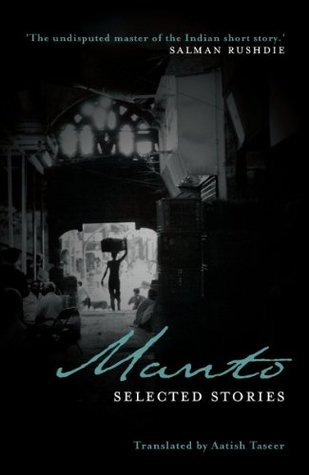An Intimate Look on Manto and His Short Stories
 Only recently, I think, Manto is getting traction once again. A writer disowned by his country because of cultural bigotry (This act is an irony itself since Manto himself left his country and then regretted it.) and was unable to grow in his new ground, died as a middle-aged man. People were forgetting him and would have unless a nice movie came out.
Only recently, I think, Manto is getting traction once again. A writer disowned by his country because of cultural bigotry (This act is an irony itself since Manto himself left his country and then regretted it.) and was unable to grow in his new ground, died as a middle-aged man. People were forgetting him and would have unless a nice movie came out.
I’m not going to talk about the movie though. His writings, specifically of a book of some translated short stories by Aatish Taseer are my locus now. Rather a short book of short stories it is, only 138 pages, you can simply read it at any time, and I urge you to do so. The stories are indeed well chosen as the translator claimed to show the spectrum of Manto’s ability. I can also vouch for the translation quality because I’ve already read some really good translations of Manto in Bengali. Since all the languages in the Indian subcontinent are kins, they share similarities. You can easily get a vibe of the original writing.
To see in Manto’s eyes is like seeing with sensors rather than wisdom. You don’t need any special depth to understand Manto, I think. His writings are all about the things that are alive. You’ll rarely find any description about the environment in his writings, but whenever you get some, they will hit some of your nerves. You may find yourself beside a long wall with the stink and stains of urine or in a room so small that you may suffocate. These stains and stinks, these feelings of suffocations are lively. Minute details, which is a strength of many writers is almost absent in his works. Rather he will talk about peoples mind and thoughts at length, what are they thinking, acting and living… The stories are stories of living things and you’ll start living and breathing in these stories.
Time to time, we talk about this and that responsibilities about writers and artists in general. Well, to be truthful, an artist’s only responsibility is to speak his mind truthfully. To do that an artist may, and historically always has been an iconoclast in her/his style, subject, and expression. Obscene, Manto was, and also skeptic about the then contemporary ideas of revolution and freedom. Icon, be it Gandhi or chastity, he has challenged. By doing this, he expressed truths that transcend beyond society’s ethics yet very close to our human self.